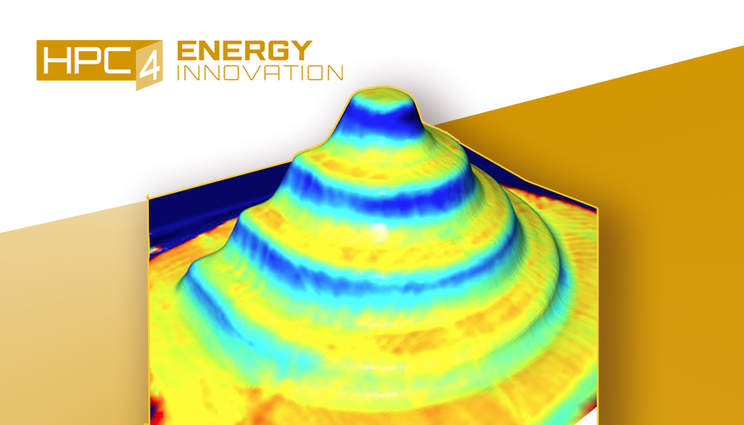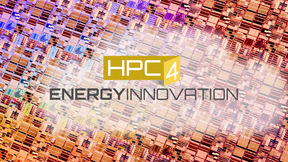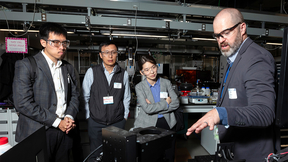DOE announces five new energy projects at LLNL
 (Download Image)
(Download Image)
Lawrence Livermore National Laboratory will collaborate with Machina Labs to apply machine learning to aluminum sheet metal processing for aerospace and automotive applications. The project is one of five recently announced LLNL-led projects that will be funded by the High Performance Computing for Energy Innovation (HPC4EI) initiative. Image courtesy of Machina Labs.
The Department of Energy (DOE) today announced two rounds of awards for the High Performance Computing for Energy Innovation Program (HPC4EI), including five projects at Lawrence Livermore National Laboratory (LLNL).
HPC4EI connects industry with the computational resources and expertise of the DOE national laboratories to solve challenges in manufacturing, accelerate discovery and adoption of new materials and improve energy efficiency. The awards were all funded by the DOE Office of Energy Efficiency and Renewable Energy’s Advanced Manufacturing Office (AMO) through the HPC4Manufacturing (HPC4Mfg) arm of the broader HPC4EI initiative. HPC4EI is managed by LLNL.
The latest announcement combined both the HPC4EI winter 2020 and spring 2020 selections. The five new projects that will be led or co-led by LLNL researchers include:
- A project with Materials Sciences LLC to combine recent advances in topology optimization-based design, high performance computing (HPC) and additive manufacturing (AM) technology to develop high pressure and temperature heat exchangers.
- A collaboration with Machina Labs to apply machine learning to aluminum sheet metal processing for aerospace and automotive applications.
- A partnership with Oak Ridge National Laboratory (ORNL) and Rolls-Royce Corporation to use HPC to study a key modeling component in the quench heat-treatment processes for gas turbine parts.
- A partnership with Toyota Motor Engineering & Manufacturing North America to improve understanding of the relationship between properties in specific solid electrolytes for lithium-ion batteries.
- A continuation of a project with VAST Power Systems, Inc. and Argonne National Laboratory to improve the efficiency of VAST’s turbines for rapid transients in energy production.
DOE’s AMO contributed $4.2 million in funding for the two rounds. Other awards announced include partnerships between ORNL and Ford Motor Company; ORNL and the Raytheon Technologies Research Center; the National Renewable Energy Laboratory (NREL) and Futamura Group; NREL and CHZ Technologies LLC; ORNL and GE Research; the Pacific Northwest National Laboratory and ESI North America; and Sandia National Laboratories and Procter & Gamble Company.
The projects each received up to $300,000 from DOE and required in-kind contributions from industrial partners of at least 20 percent of total project cost.
Visit the web for a full list of awards.
The HPC4EI initiative will soon be accepting proposals for its fall 2020 solicitation, covering the HPC4Mfg and High Performance Computing for Materials (HPC4Mtls) programs. For more information, visit the web.
Visit the web to find out more about the HPC4Mfg Program.
[TJ1]Link to main announcement.
Contact
 Jeremy Thomas
Jeremy Thomas
[email protected]
(925) 422-5539
Related Links
High Performance Computing for Energy InnovationDOE Office of Energy Efficiency and Renewable Energy’s Advanced Manufacturing Office
Tags
DOEHPC, Simulation, and Data Science
HPC
Computing
Engineering
HPC Innovation Center
Energy
Featured Articles







